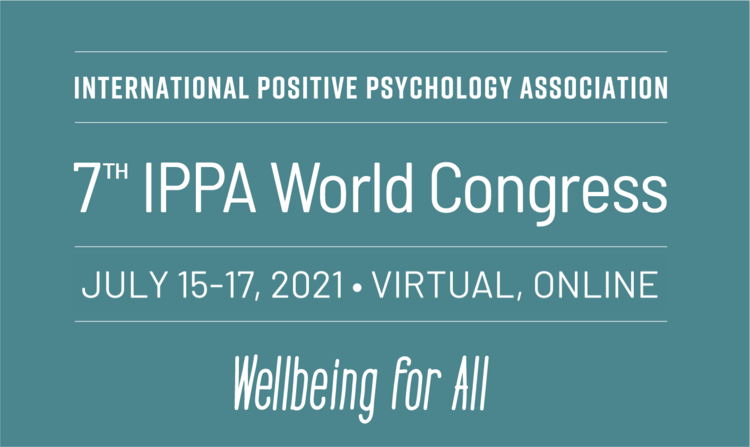Two years ago I had the privilege of attending the IPPA World Congress 2019 in Melbourne, Australia. I was really looking forward to going to Canada this year and experiencing the congress as a proper PhD student, connecting with potential collaborators and raise opportunities for my time after graduation. Unfortunately, due to the COVID pandemic, the networking possibilities were greatly limited and I could only really enjoy the talks and presentations. Yes, the platform offered a chat function, but I thrive on spoken words (how to) much more than on the written ones (changing this is one of the reasons I started writing this blog). Nonetheless, let’s have a quick look into my favourite presentations of this year’s IPPA World Congress on Positive Psychology!
Blue Zones
“My favourite talk was on centurions” – cringe! We discussed our highlights of the conference at my monthly IPPA Clinical Division peer group meeting and I surely earned some good laughs for my reply. Centenarians, of course! English as a second language is a joy for everyone involved. Dan Buettner talked about his journeys to the places with the oldest population and the happiest people and shared with us what things they share. My key take-aways for a long and healthy life are as follows:
- Never retire, keep busy and enriched by meaningful activities
- Plant-based diet (I love my greens and beans <3)
- Focus on prevention rather than curing deseases
- Foster connection across generations (committed social circles)
- Move naturally – walking 10m across the day is better than going for an intense run
My favourite story was about an old lady who volunteered at 6 different organizations, including an elderly care home. She was 106. Imagine your nurse at your retirement home was 30 years older than you! Most importantly, most centenarians did not think about their aging too much. You don’t retire when you get old – you get old once you retire. And even Tony Robbins knows: energy flows where attention goes.
How did I get so old? I don’t know, I think I just forgot to die.
A very old man
Maslow’s Pyramid of Needs revisited
Oh, how much did I love watching Mythbusters when I was younger! Scott Barry Kaufman’s talk on Maslow’s pyramid of needs felt like a psychology-themed version of it: Maslow never displayed the hierarchy of needs as a pyramid – and never thought of it as a hierarchy in the first place! It’s a really funny realization, given that so much research was carried out on cross-cultural differences in the order of each layer. You can find a brilliant blog post on this issue on his website. He introduces the sailboat as a metaphor and differentiates between security (the boat’s hull) and growth (the boat’s sail). Security consists of the dimensions Safety, Connection, and Self-esteem and keeps our boat afloat. Growth incorporates Exploration, Love, and Purpose and allows us to move forward on the waves of life. However, the only direction a boat with a strong sail and weak hull takes is to the bottom of the sea, and lacking a sail brings us nowhere closer to our destination either. I like this idea and consider it brilliantly helpful for counseling purposes.
Safety is the basis of security, exploration is the basis of growth.
Scott Barry Kaufman
Agency
Oh I love the topic of agency! It is such a brilliant and helpful concept and raising awareness of agency (particularly in finding solutions!) is such an effective goal for counselling sessions! Still, I often see great attachment for the perceived lack of agency even in well-adjusted individuals. Martin Seligman’s talk on agency has thus resonated very strongly with me.
Agency appears to be causal for less depression, more productivity, more creativity and putting more effort into reaching one’s goals. History has shown that cultivating agency on a societal level causes progress in art, technology, political freedom, and general quality of life. A lack of agency, on the other hand, leads to stagnation (you will easily find the original studies online, I won’t provide a reference list here).
Seligman hypothesized that helplessness is the default reaction to adversity – efficacy and agency is something that needs to (and can) be acquired. High levels of self-efficacy are associated with more persistence, physical health, innovativeness and – I don’t want to say it here but I’ll just quote him – “resilience”. These qualities foster optimism, and optimistic people live 8-9 years longer compared with pessimists, perform better in sports, work, and academic achievements, and cope better with difficult experiences. Optimists show higher degrees of well-being, and higher well-being is in itself causal for many of the positive qualities mentioned above, including social relationships. In short: agency leads to an upward spiral of good things happening to you (and remember, that’s particularly the case if you stay always open for pleasant surprises). Sounds good? I agree, agency is awesome!
He said not “Thou shalt not be tempested, thou shalt not be travailed, thou shalt not be dis-eased”; but he said, “Thou shalt not be overcome”. And all shall be well, and all shall be well, and all manner of things shall be well.
Juliana of Norwich
Closing words
While this virtual conference has not been as impactful as the in-person conference in Melbourne two years ago, I consider the three days very well spent. The conference was well organized and even the rare hick-ups were quickly resolved. However, I firmly believe that the main purpose of scientific conferences is networking – and while I had the pleasure of connecting with some friends and colleagues via the platform, being in the same room with like-minded people is just not replaceable.

